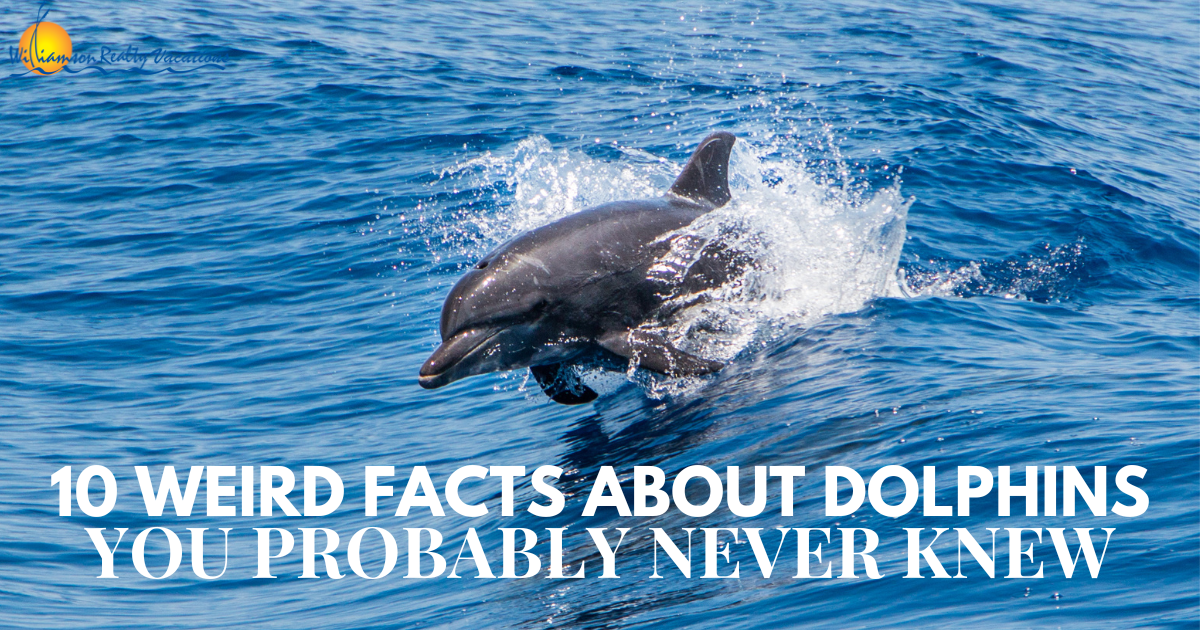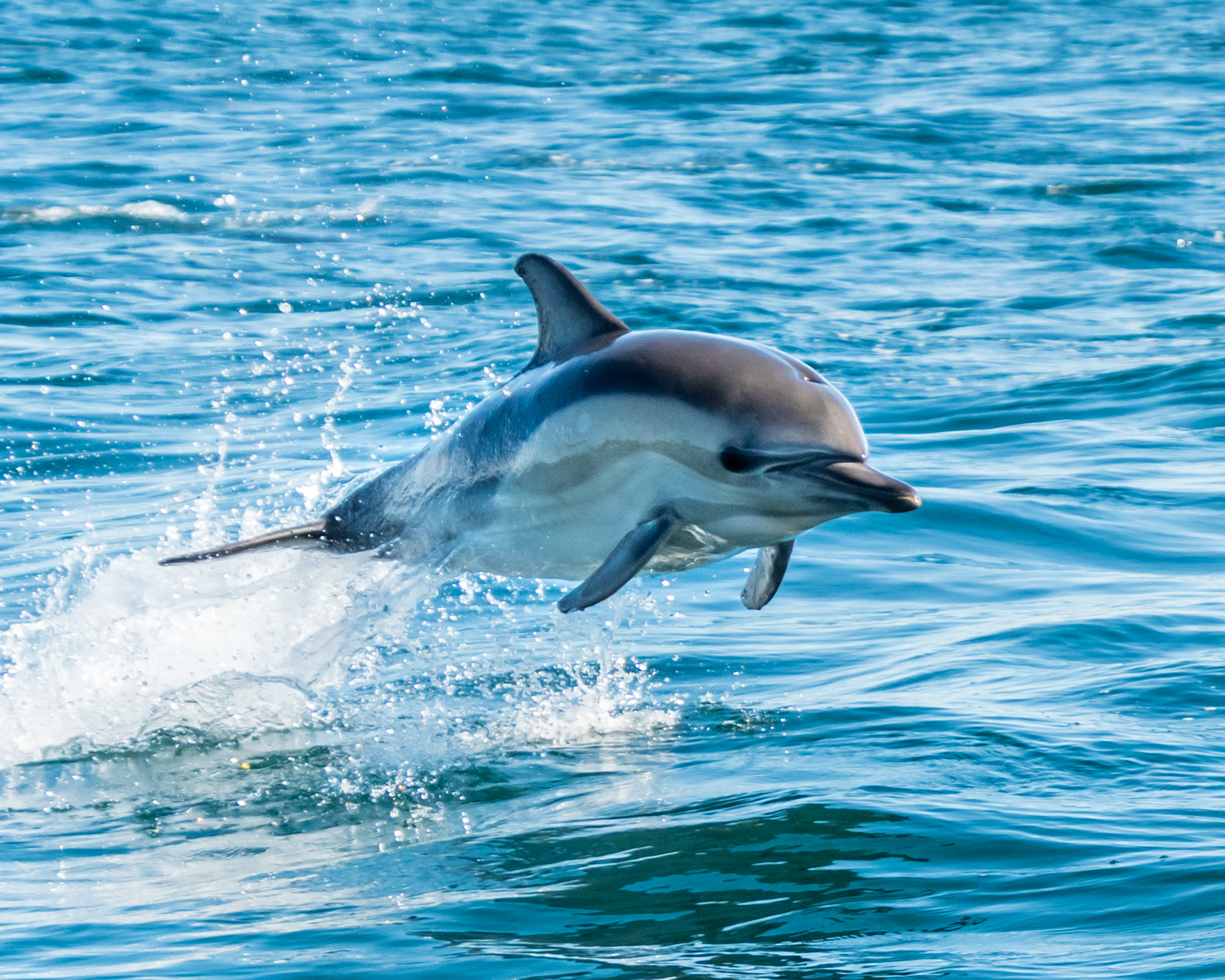Discover Fascinating Dolphin Facts That Will Amaze Your Close Friends
Discover Fascinating Dolphin Facts That Will Amaze Your Close Friends
Blog Article
Discover the Marvels of Dolphins: Amazing Realities You Didn't Know
Dolphins, commonly concerned as one of the most intelligent aquatic creatures, show a variety of remarkable behaviors that challenge our understanding of pet cognition. Their one-of-a-kind communication techniques, including trademark whistles for specific acknowledgment, expose complicated social frameworks that appear like those of human beings. These animals play a crucial role in maintaining the balance of aquatic ecosystems while displaying remarkable problem-solving abilities (Dolphin Facts). As we explore the intricacies of their lives, one must consider the effects of their knowledge and what it discloses regarding the all-natural world. What other surprising aspects of dolphin actions continue to be to be discovered?
Dolphin Knowledge and Trouble Resolving
Demonstrating impressive cognitive capacities, dolphins are commonly recognized for their knowledge and analytical abilities. Research study has revealed that these marine creatures have advanced thinking capabilities, often involving in complex social communications that need significant cognitive handling. Notably, dolphins are experienced at utilizing cutting-edge methods to overcome obstacles in their environment, such as making use of tools or working with with others to quest for food.
Studies disclose that dolphins can follow complex instructions and do tasks that include multi-step remedies, a sign of their capacity to plan and carry out. Their ability for knowing is more evidenced by their excellent memory, which allows them to keep and make use of information over prolonged durations. Cognitive tests have demonstrated that dolphins can recognize abstract concepts, including mathematical partnerships and spatial awareness.
Additionally, dolphins show an amazing degree of self-awareness, as evidenced by their capability to identify themselves in mirrors. This attribute is typically taken into consideration a hallmark of advanced intelligence, paralleling the cognitive capabilities observed in human beings and great apes. In general, the intelligence and analytical abilities of dolphins highlight their intricate psychological professors and flexibility in varied environments.
Unique Communication Strategies
Dolphins stick out for their unique communication techniques, which are important for their social communications and survival in the wild. These very intelligent aquatic creatures use an innovative system of articulations, body movement, and echolocation to communicate messages and coordinate tasks.
Vocalizations include clicks, whistles, and other audios that serve different functions, from expressing emotions to signaling alarm system or working with team motions while hunting - Dolphin Facts. Each dolphin has a signature whistle, comparable to a name, which promotes private recognition within coverings. This type of identity is essential for maintaining social bonds

Echolocation is an additional amazing element of dolphin interaction. By giving off audio waves and analyzing the returning echoes, dolphins can navigate their atmosphere, find target, and also identify other marine animals. This multi-faceted interaction system emphasizes the intricacy of dolphin interactions and highlights their adaptability in diverse marine environments. On the whole, these techniques are fundamental to their survival and social structure.
Social Frameworks and Relationships
The complex communication methods employed by dolphins play a significant duty in forming their social structures and relationships. These highly smart aquatic animals typically form complex social teams called pods, which can differ in size and composition. A regular shuck may include a few individuals to numerous lots, and it is typically led by a dominant lady.
Dolphins are understood for their strong social bonds, which are identified by cooperative behaviors such as searching together, common pet grooming, and even playful communications. These connections are important for their survival, as they boost the effectiveness of tasks such as foraging and shielding the group from predators.
Within husks, dolphins exhibit a range of social pecking orders and duties, which can transform based on the dynamics of the group. In general, the social frameworks and partnerships of dolphins mirror an innovative degree of social organization that contributes to their adaptability and success in different marine atmospheres.
Function in Marine Ecosystems
In aquatic environments, dolphins play a crucial role as both predators and prey, adding to the overall health and balance of their environments. As apex predators, dolphins help regulate the populaces of their target, which consists of fish, squid, and shellfishes. By regulating these populaces, dolphins protect against overgrazing of aquatic sources, consequently promoting biodiversity and sustaining the structure of the community.

Furthermore, dolphins contribute to vitamins and mineral you could check here cycling in marine settings. Their feeding habits and subsequent waste manufacturing enrich the water column, helping with the development of phytoplankton, which forms the base of the marine food cycle. On the whole, the presence of dolphins in marine environments is vital for maintaining environmental equilibrium, sustaining the health of other marine types, and maintaining the total vigor of nautical environments.
Outstanding Physical Capacities
Among the most amazing elements of dolphins is their remarkable physical abilities, which enable them to flourish in varied aquatic settings. These highly intelligent animals possess structured bodies, permitting for reliable movement with water. Their powerful tails, or flukes, can drive them at rates of approximately 25 miles per hour, making it possible for speedy navigating and evasion from killers.
Dolphins also exhibit amazing agility, carrying out acrobatic feats Full Article such as spins and flips. Their pectoral fins provide security and ability to move, permitting them to make sharp turns and quick changes in instructions. In addition, dolphins have an one-of-a-kind capacity referred to as echolocation, which enables them to navigate and search in dirty or dark waters. By emitting sound waves and interpreting the returning echoes, they can determine the location, dimension, and form of things around them.
Moreover, dolphins exhibit outstanding endurance, qualified of swimming cross countries without tiring. Their thick layer of blubber not only gives insulation however also help in buoyancy. Collectively, these physical attributes highlight the adaptability and strength of dolphins, making them several of the most remarkable creatures in the sea.
Final Thought
In final thought, dolphins exhibit impressive knowledge through their problem-solving capabilities and advanced interaction strategies. As pinnacle killers, dolphins play an essential role in preserving the balance of marine environments. Dolphin Facts.
On the whole, the social frameworks and partnerships of dolphins mirror an innovative degree of social company that adds to their flexibility and success in diverse aquatic settings.

Overall, the useful reference existence of dolphins in marine environments is important for keeping ecological equilibrium, sustaining the health and wellness of various other marine types, and maintaining the overall vigor of nautical environments.
One of the most impressive aspects of dolphins is their excellent physical abilities, which enable them to prosper in diverse marine atmospheres.
Report this page